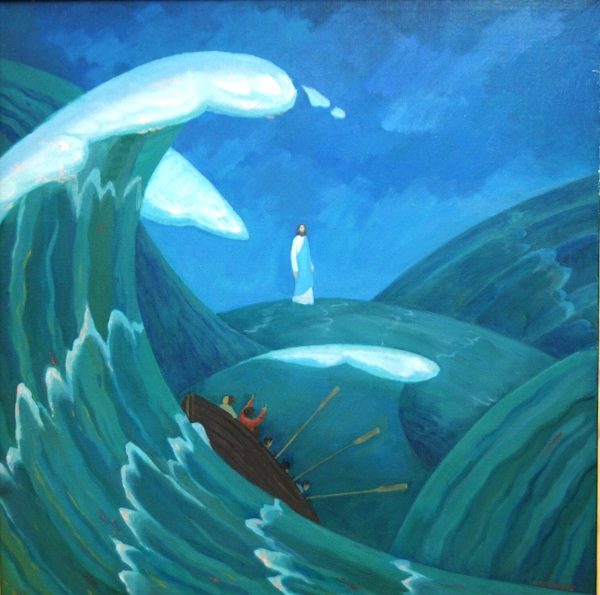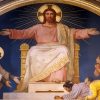In the Gospel there are two stories about storms on the Sea of Galilee. The Lord in the first one has remained on the shore; in the second one He is together with the disciples. A storm comes down upon the sea, the apostles fight for their lives. Their strength, their skill avails nothing. They see the moment when they will die, and at that moment, in one of the stories, Christ appears walking on the sea. They shout for fear because they think He is a ghost. God is the Lord of Peace, the Lord of harmony, He cannot be at the heart of this storm, it cannot be Him. They cry for fear and the Lord says to them “Fear not, it is I.”
Isn’t that the situation in which many Christians find themselves in the tragedies that befall them in their family life, in their private and personal circumstances? God cannot be there because there is a storm. If He was there, there would be no storm. We forget that the Lord is as much the Lord of the storm as He is the Lord of serenity, stillness and peace. When Christ had spoken these words “Fear not, it is I”, Peter wanted to go and join Him, and as long as he had no other desire than to be with His Lord, he could weather the storms, walk on the seas, stand against the pressure of the winds. When he remembered that he was in danger, that the storm was raging, that he had lost even the frail protection of this nutshell of a tiny vessel, then he began to drown.
Now what was their mutual position? The apostles were fighting for their lives, edging out of the storm, trying to find refuge on the shore outside the storm, away from the sea in security, but Christ was at the very heart of the storm. He was at a point where all the violence of the storm met. He did not try to escape the storm, to regain the shore, He rode the storm.
In the other story we find the Lord asleep in the boat. The disciples fight for life, death is around them, conquering their strength, conquering their hope, breaking down their faith, distressing them to a point of despair. And Christ, the Gospel says, is asleep with His head on a cushion to add insult to injury. They are dying and He sleeps in comfort. Isn’t that what we say all the time about our God? We are dying, we are in the throes of death, of fear, of danger, of illness, of strife and so on, and where is our God? — comfortably established in His heaven, out of reach, safe, asleep with His head on a cushion. And the disciples turn on Him. They do not come up to Him and say “Lord, we have just experienced your power to perform miracles, we trust you, we believe in you. Say just a word and everything will be alright.” They call Him out of sleep with words — that are harsh. The Greek text is harsher than the English rendering. It amounts practically to saying “For all you care, we will be dead in a minute.” Isn’t that what we say all the time to God? Where are you? If you can do nothing, at least give us a sign of sharing with us in our despair.
Now we must redeem our God from this attitude — we must turn to Him knowing that He is involved, He is committed more than we are. Because we, like the disciples, edge towards the shore, trying to escape into the stillness or a little haven — He stands right in the middle of it, facing it and at times projecting upon it, as in the Gospel story, His own serenity, His own stillness and peace and commanding the storm to be still and the winds to obey.




















